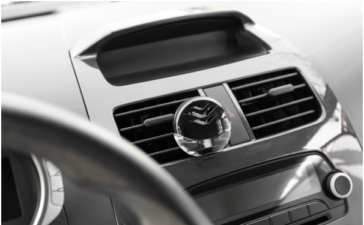Are you in the market for a car?
Whether it’s your first purchase or you’re already on your tenth ride, purchasing a car is an exciting but nerve-racking experience. You can’t wait to get behind the wheel of the new vehicle but also you aren’t sure whether you’ll make a good purchase, especially if you’re in the used car market.
This is why it’s crucial to arm yourself with all the advice you can get before you start shopping. In this article, we’re sharing useful car buying tips that will help you end up with the car that makes you happy.
Let’s drive right into it!
1. Do You Really Need to Buy a Car Right Now?
This might sound like a strange piece of advice, and it is. After all, you’re here because you’ve likely already made up your mind about buying a car and you just need some professional guidance. But hear us out.
Buying a car can be an impulsive decision. Perhaps you just got your first job and your bank has told you that you can qualify for an auto loan. You don’t want to waste any spare time.
Or, maybe your current car is acting up and you don’t want to go through the trouble of fixing it. You want to replace it as soon as possible.
These situations are understandable, but they might be putting you at a disadvantage. A car is a big-ticket item. You want to purchase a car that gives you the most bang for your buck, right?
To do this, it’s important that you’re sure you really need to buy a car. You have no other choice.
2. What Do You Need in a Car?
Now that we’re clear you need to buy a car, the next step is to identify what you need in a car.
It might sound cliché, but cars do indeed come in all shapes and sizes. You want a car that befit your needs.
For instance, if you’re an off-road enthusiast and are looking for a car to power your adventures, you need to zero in on vehicles that are made for that purpose. Don’t buy a saloon car thinking it’s going to take you into the mountains.
Similarly, if you need a car mainly for commuting to work, you don’t need a mountain-conquering truck – although it would be nice to have. You need a convenience car.
Besides the core use of the car, look at things like safety features, passenger capacity, fuel consumption, and reliability.
If this is going to be your daily driver, for instance, don’t go buying a used vehicle that has a history of unreliability. If it’s a family car you’re buying and the car isn’t marketed as family-size, stay away from it.
Also, you may want cars with extra features like a remote starter. A remote starter system for your car does more than enable you to fire up the engine before you get in. You can warm it up, which is a handy feature to have during winter.
3. Establish Your Budget
Whether new or used, cars don’t come cheap. In fact, the average price of a new car has been on the rise, reaching $40, 472 in March 2021. The average cost of a used light vehicle has also been trending upwards.
With this in mind, you need to establish a budget before you head to the dealerships.
A mistake a good number of car buyers, especially first-time car buyers, make is budgeting for just the upfront cost of the vehicle. Yet, the cost of ownership goes beyond the purchase price. You have to factor in the cost of gas or electricity, insurance, maintenance, repairs, and even depreciation.
This is to say, if the car is going to cost you $5,000 every year, you need to ensure you can afford this amount; otherwise, you’ll be left with a car that you can’t afford to keep on the road.
With a budget estimate ready, the next step is to know how you’ll finance it. The purchase price can be paid for in cash, but most buyers take out an auto loan or go in for dealership financing.
If you’re planning to get an auto loan, shop around for loan quotes and get pre-approved before you start shopping for the loan.
4. Make a List of Cars That Suit Your Needs and Budget
With a budget and a good grasp of your needs, half of the job is done. The other half is to make a list of the cars that meet your financial and motoring needs.
Creating a list shouldn’t be difficult to do. A simple online search like “family cars under $30,000” will lead you to pages that have listed various car options.
You can also ask around for recommendations. This is the best time to make use of that petrolhead friend or cousin.
5. Start Shopping for the Car
You can begin your search for a car to buy on the web, but if you live in a region with multiple dealerships, it’s better to visit them and see whether they have any of the cars on your list.
If you’re buying a new car, you just need to zero in on the exact car you want to buy and get it from the dealership. If you’re buying a used car, however, there’s a lot more to consider before settling on a vehicle. It’s advisable to go along with a person who knows a thing or two about cars.
After settling on a car, book a test drive and put it on its paces. Do you like how it drives? Is it mechanically sound? Even new cars can have mechanical or electrical faults, so don’t skimp on that.
Lastly, complete the paperwork and take your ride home!
These Car Buying Tips Will Make Your Experience Smoother
Buying a car isn’t as easy as going to the grocery store and picking your favorite fruits. There are so many options on the market, making the entire experience difficult. However, with these car buying tips, you’re now in a position to have a smooth experience.
Happy motoring and keep tabs on our blog for more car ownership advice.









